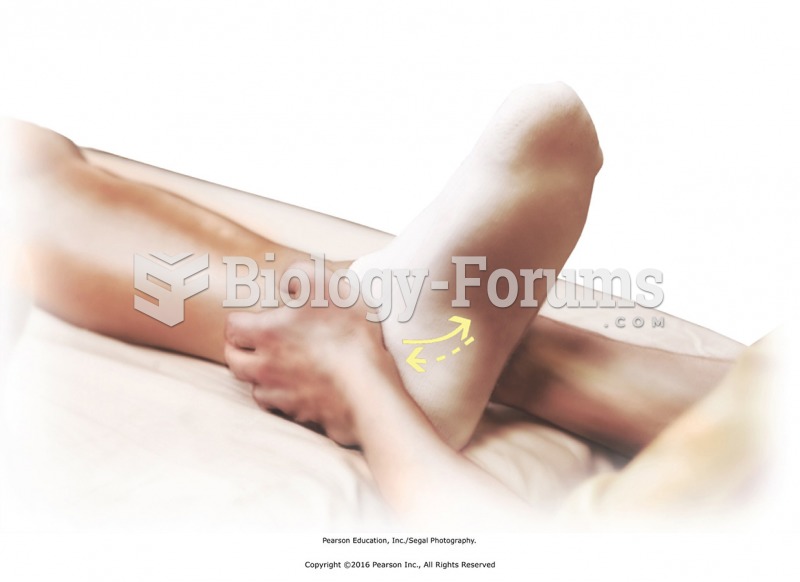|
|
|
IgA antibodies protect body surfaces exposed to outside foreign substances. IgG antibodies are found in all body fluids. IgM antibodies are the first type of antibody made in response to an infection. IgE antibody levels are often high in people with allergies. IgD antibodies are found in tissues lining the abdomen and chest.
Green tea is able to stop the scent of garlic or onion from causing bad breath.
This year, an estimated 1.4 million Americans will have a new or recurrent heart attack.
Adult head lice are gray, about ? inch long, and often have a tiny dot on their backs. A female can lay between 50 and 150 eggs within the several weeks that she is alive. They feed on human blood.
More than 2,500 barbiturates have been synthesized. At the height of their popularity, about 50 were marketed for human use.







